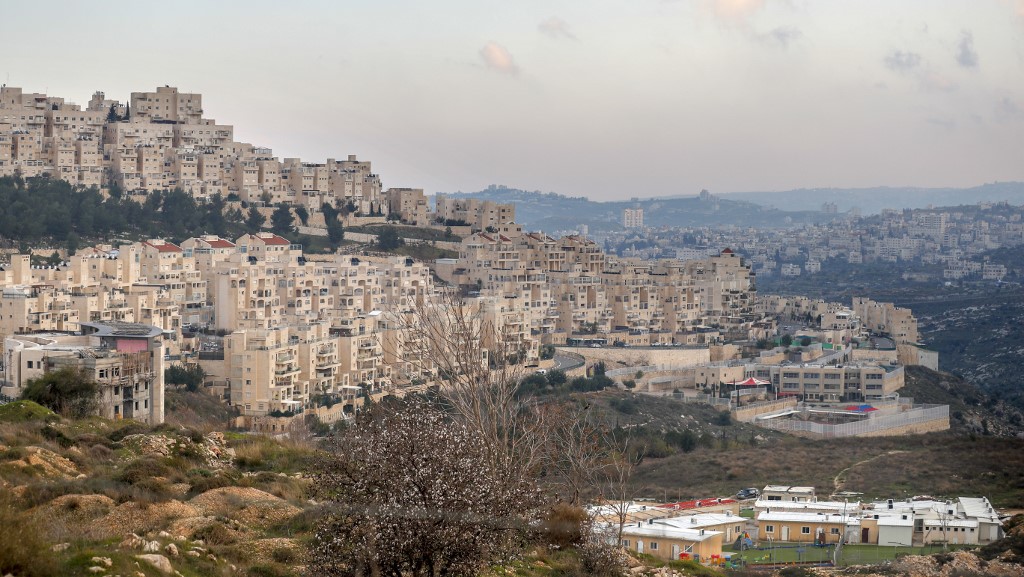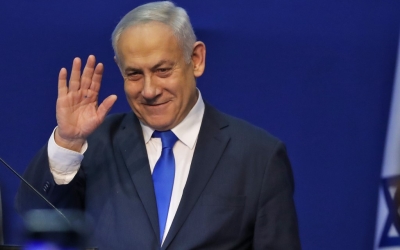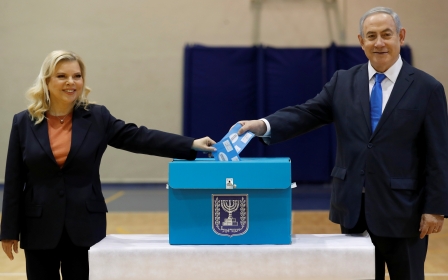Israel election exposes a political system in disarray

In the latest Israeli election, Benjamin Netanyahu bounced back after two previous indecisive results. His coalition picked up five seats from the last contest and stands within three seats of a governing majority.
Ay, but there’s the rub, as Shakespeare wrote. Those three seats are by no means guaranteed to him, given that his coalition already includes anyone remotely close to him ideologically. At first glance, there appears to be little chance he will secure that majority.
Cobbling together a government
There are a few ways he could do so. Netanyahu could enter a unity coalition with Blue and White. Though leader Benny Gantz swore he would never do this during the election campaign, Israeli politicians are known to backtrack easily from such promises.
Alternatively, Netanyahu could persuade Yisrael Beiteinu leader Avigdor Lieberman to join his coalition, though the latter has vowed never to do this. There is so much bad blood between them, I’m inclined to take him at his word.
New MEE newsletter: Jerusalem Dispatch
Sign up to get the latest insights and analysis on Israel-Palestine, alongside Turkey Unpacked and other MEE newsletters
There has hardly been a functioning Knesset for the past eight months or so. Has anyone noticed, or cared?
The most likely scenario for a ruling majority entails persuading someone in the Blue and White camp to switch sides. Already, a Blue and White MK who was secretly recorded impugning Gantz is reportedly being blackmailed into jumping ship to Likud.
If none of these eventualities occur, then Israel could be headed for a fourth election in the autumn. And even if Netanyahu does cobble together a government, it will be an exceedingly shaky one, with at best a one- or two-seat majority. Such coalitions tend to be extremely fragile and short-lived; the slightest crack in the armour caused by the least powerful party could send the entire apparatus tumbling to the ground.
Another wildcard is Netanyahu’s criminal trial, set to begin on 17 March. Though the trial may take some time, the final outcome will be definitive. If Netanyahu is convicted, he would lose his job, and Likud would face a leadership battle. If he is acquitted, he would emerge much stronger and likely call new elections to give him more breathing room and a stronger coalition.
Violating international law
But the most depressing thing about this entire election - and the two that preceded it - is the exposure of the extreme dysfunction at the heart of the Israeli political system. There has hardly been a functioning Knesset for the past eight months or so. Has anyone noticed, or cared?
That doesn’t mean that the government itself has ceased to function. On the contrary, Netanyahu has promised the electorate that he would annex the Jordan Valley if he won. Despite feeble US opposition to this plan, this far-right Israeli government has shown that it will pursue any policy, no matter how radical, regardless of the consequences.
The Trump administration, which has endorsed every Israeli violation of international law, will be a pushover if Netanyahu moves forward with this plan.
An Israeli government building thousands of new settler homes and annexing land slated under previous two-state plans to be part of a future Palestinian state, will challenge the international community to act. It will highlight to impotence of the United Nations and the European Union in holding Israel to account.
It may also add further pressure on the International Criminal Court to pursue a vigorous investigation of Israeli war crimes during the 2014 Gaza war and the Great March of Return. Certainly, grassroots movements such as BDS (boycott, divestment and sanctions) will be strengthened as one of the only effective tools to oppose these flagrant Israeli abuses.
Personality contest
Returning to the Israeli election, all of the last three contests have been decided solely on the basis of personality. While foreign and Israeli media portray the Blue and White opposition as a “centrist” party, it is actually a soft-right version of Likud, with hardly any divisions based on ideology or values.
Where Netanyahu supported Trump’s Israel-Palestine deal, so did Gantz. Where Bibi rattled sabres on Iran, Gantz rattled F-16s. When Netanyahu promised to annex the Jordan Valley, Gantz gladly joined him in agreement. There is hardly a significant difference between them; one is Tweedledee, the other Tweedledum.
Another disappointment in this election was the performance of the unified “Zionist left” coalition, including remnants of the Labor party and Meretz. It fell to seven seats from its former total of 11 in the last Knesset.
As often happens in such grand coalitions, the parties give up what made them ideologically distinctive, merging into an amorphous mass and losing whatever clarity and identity they had.
This is the crisis of the Zionist left. With the overwhelming dominance of the far-right in political life, the Zionist left has lost its way, and no longer represents a clear progressive vision.
Palestinian turnout
The one development that offers a small degree of hope is the Joint List winning 15 seats, its best outcome ever. The reason is the alarm felt by Palestinian citizens of Israel over the Trump deal, which proposed population transfers, a form of ethnic cleansing.
Under the plan, large portions of the Palestinian population now under Israeli sovereignty would lose their citizenship. That’s why two-thirds turned out to express their opposition.
The Joint List remains the third-largest party in the Knesset. But this hardly means much, since no Jewish party is willing to include it in a governing coalition. That means none of the Palestinian MKs will be cabinet members, which is where real political power lies in the Israeli system.
These voters discovered a way to make their tormentor pay a price. For them, there is some small satisfaction in that
When liberal Zionists try to argue that Israel’s democratic nature is proven by the status of Israeli “Arabs”, one needs only to point to this glaring fact to contradict the claim.
Having the vote means little if in exercising it, you do not gain power to influence your life and the lives of your community members. This is barely possible for the Joint List MKs.
Nonetheless, the increased turnout of Palestinian voters might have deprived Netanyahu of a seat or two that he would otherwise have taken. In this sense, Netanyahu’s merciless pummelling of this electorate over the past few years has finally drawn blood. These voters discovered a way to make their tormentor pay a price. For them, there is some small satisfaction in that.
The views expressed in this article belong to the author and do not necessarily reflect the editorial policy of Middle East Eye.
Middle East Eye delivers independent and unrivalled coverage and analysis of the Middle East, North Africa and beyond. To learn more about republishing this content and the associated fees, please fill out this form. More about MEE can be found here.







